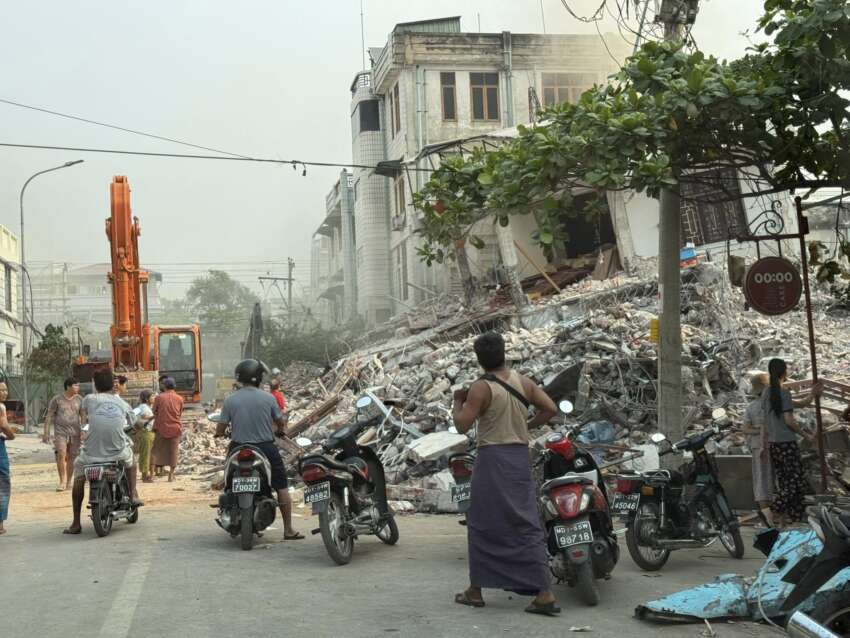
The military council has issued orders regarding buildings damaged by the recent earthquake in Mandalay, according to local residents. The directive requires earthquake-damaged buildings to be aesthetically screened off, obtain permits for repairs, and halt all ongoing construction projects. The Mandalay City Development Committee has been distributing warning notices to property owners, instructing them to maintain aesthetic appearances including covering damaged structures with metal sheets. These notifications have also been published through their Facebook page.
The situation has created additional burdens for earthquake victims who are already struggling with displacement and housing issues. The Mandalay City Development Committee has been categorizing earthquake-damaged buildings into blue, orange, and red levels through field inspections. For any repairs, building owners must submit applications to the committee along with endorsements from licensed engineers. The military council has also ordered the temporary suspension of all construction projects across six townships in Mandalay. These projects can only resume after the council’s inspection team verifies that the main support columns have not been compromised.
Local residents have expressed significant concerns about the military council’s slow bureaucratic processes and corruption. Applications for demolishing dangerous leaning buildings reportedly face delays of at least three months, with priority given to those who can afford to pay bribes, according to local sources. The situation is further complicated by construction material prices having increased three to four times their normal rates, making reconstruction efforts extremely challenging for affected residents. One owner of a tilted high-rise building in Mandalay questioned how they could maintain aesthetic appearances when they had lost their homes and faced astronomical prices for building materials.
The military council’s response to the earthquake crisis has been criticized for focusing on issuing orders rather than providing actual assistance to affected citizens. While the council continues to implement strict regulations and bureaucratic procedures, earthquake victims are left struggling with immediate housing needs and financial challenges. The combination of delayed approvals, increased construction costs, and prioritization of those who can pay has created a significant burden on the affected population, particularly those who have lost their homes or face dangerous living conditions in damaged buildings. The situation highlights the disconnect between the military council’s administrative approach and the urgent humanitarian needs of earthquake-affected residents in Mandalay.



